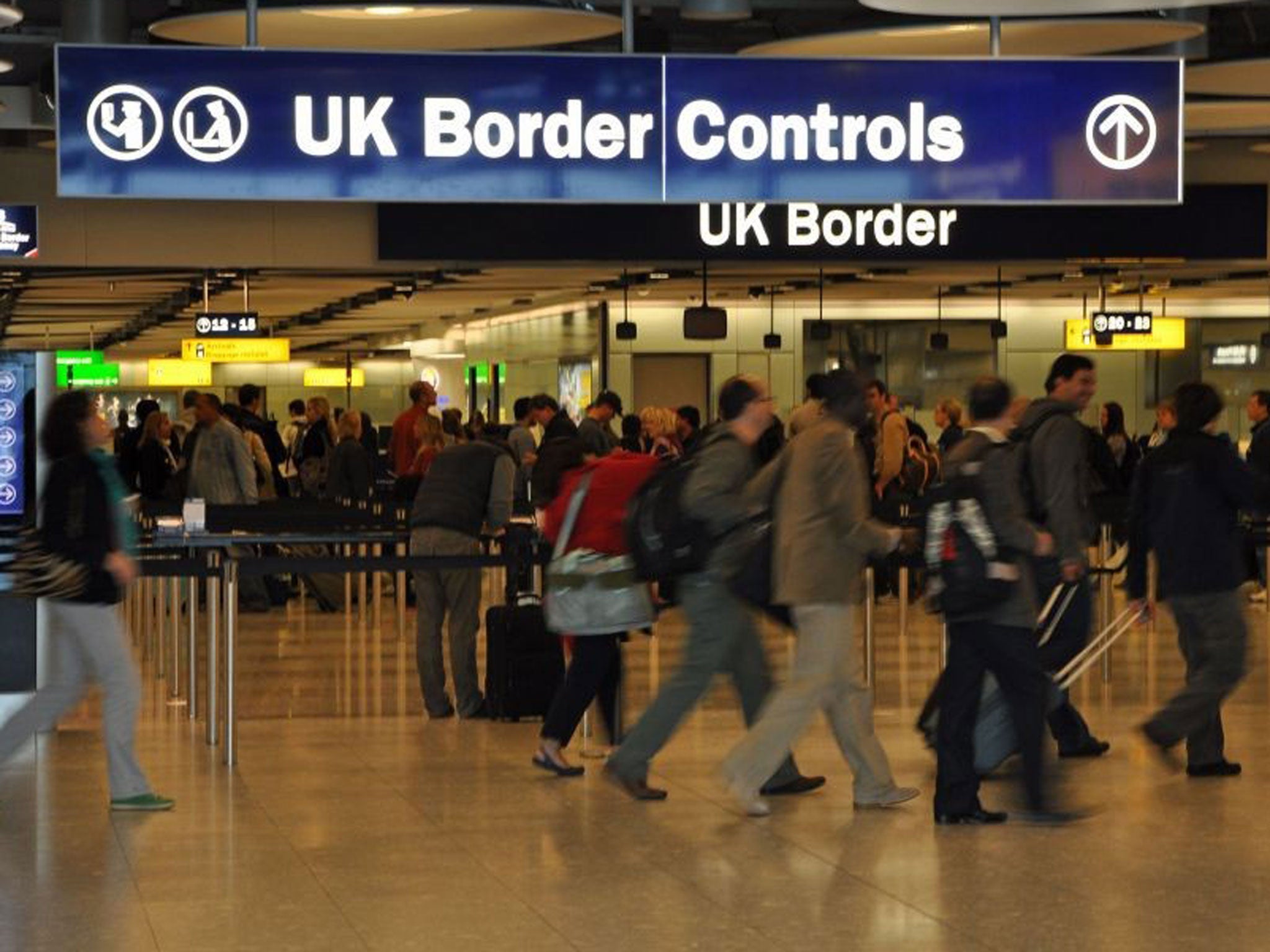‘Toxic’ immigration debate is giving Asia jitters, expert warns
Former UK ambassador to Japan says talk of ‘drawbridge Britain’ is deterring growing economies from investing here

Your support helps us to tell the story
From reproductive rights to climate change to Big Tech, The Independent is on the ground when the story is developing. Whether it's investigating the financials of Elon Musk's pro-Trump PAC or producing our latest documentary, 'The A Word', which shines a light on the American women fighting for reproductive rights, we know how important it is to parse out the facts from the messaging.
At such a critical moment in US history, we need reporters on the ground. Your donation allows us to keep sending journalists to speak to both sides of the story.
The Independent is trusted by Americans across the entire political spectrum. And unlike many other quality news outlets, we choose not to lock Americans out of our reporting and analysis with paywalls. We believe quality journalism should be available to everyone, paid for by those who can afford it.
Your support makes all the difference.The “increasingly toxic political debate” on immigration and the possibility that the UK could leave the European Union is rapidly fuelling concern among Asian governments and businesses, and risks damaging the country’s economic recovery, Britain’s former ambassador to Japan has warned.
In an article for The Independent on Sunday website, Sir David Warren, David Cameron’s man in Tokyo until a year ago, condemns “anti-immigration rabble-rousers” for putting off Asian companies, who see Britain’s membership of the EU as essential to investment and trade. Japanese politicians and companies are “bewildered” at the prospect of Britain “pulling up the drawbridge”, Sir David says.
The intervention from someone who was Britain’s ambassador so recently in a strong Asian economy highlights concerns that, despite Mr Cameron’s claims that the UK is engaging in the “global race”, its strategy on Europe appears isolationist to Asia.
Sir David’s remarks come as the debate over immigration intensifies, fewer than three weeks before restrictions are lifted on the right of Bulgarians and Romanians to come to the UK. On Friday, the Prime Minister tried to stem the row by announcing that in future, unrestricted immigration to the UK from new EU states should be permitted only from countries with similar levels of wealth to Britain.
But Mr Cameron has also had to counter claims from fast-growing Asian countries such as India and China that Britain has sent mixed messages on immigration.
Leading a major trade delegation to China earlier this month, Mr Cameron was forced to defend his government’s immigration policies, saying that Britain was open to businesses and bright Asian graduates. But, as Sir David writes today, concerns in Asia about British immigration policy go beyond their countries’ own bilateral relationships with the UK but include the prospect of an EU referendum in 2017, which Mr Cameron has pledged if the Conservatives win the next election. Last month, Nissan’s chief executive, Carlos Ghosn, said the car manufacturer would reconsider its investment in the UK if Britain left the EU.
As ambassador to Tokyo, Sir David was repeatedly asked by Japanese companies about the EU referendum and the question of Britain’s role in Europe. Sir David, a member of the Advisory Board of the Migration Matters Trust, writes: “To understand British government thinking on this is integral to major Japanese companies’ investment plans, as Carlos Ghosn of Nissan made clear recently. The same will be true of firms in China, India and Brazil.
“Where immigration is a major issue in the bilateral relationship, the same scrutiny will be given to politicians’ pronouncements and what they tell foreign observers about how open a country Britain really wants to be. And I have to say that, in my experience, protestations that Britain can be a stronger country by pulling up the drawbridge and going it alone are met by polite bewilderment.”
While Sir David acknowledges that Ukip will exert pressure over the immigration issue in the run-up to the European elections in five months’ time, it is clear his words are also directed at the Conservative Party and the Government.
He adds: “It’s doubly important that we don’t send mixed messages about just how open for business Britain is. An increasingly toxic political debate on immigration, encouraging politicians to outdo each other to reflect public concerns, plays immediately into doubts abroad about what the British really think on this issue.”
Immigration should be seen as a key part of the Government’s economic growth strategy and the coalition should not be “frightened off making that case by anti-immigration rabble-rousers”.
Evidence shows that migrants put more into the economy than they take out, with only 6 per cent claiming benefits. A report by University College London last month found that migrants from Europe, including eastern Europe, have contributed on average £2,610 per head to the economy since 2007. The Office for Budget Responsibility has warned that ending net migration would cause the UK’s national debt to soar to levels higher than Greece by the middle of this century.
Sir David adds: “Holding down the population below some arbitrary level risks our national well-being. This would mean higher taxes, deeper cuts and zero growth. The idea that we can detach our economic growth strategy from the continued need for legal migration is a fantasy.
“Foreign governments and foreign companies watch these political discussions in Britain with close interest and increasing concern.”
Sir David, who was in the British diplomatic service for 40 years before leaving at the end of last year, was ambassador to Japan, the world’s third largest economy, for four and a half years. There are 1,300 Japanese companies in Britain, directly employing 130,000 people.
Join our commenting forum
Join thought-provoking conversations, follow other Independent readers and see their replies
0Comments